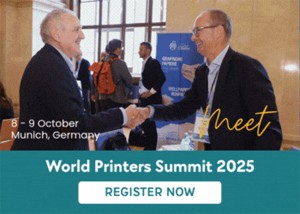It came down to this: Digital vs print… and inevitably, News vs Fairfax at Thursday’s PANPA Future Forum.
Not that the two can’t coexist – print and digital, that is – but while “stonking” profits are still to be made from print editions, the ‘print first’ argument is still up for debate.
PANPA put the four chief executives of Australia’s biggest newspaper publishers in the pen together for the opening spectacle of this year’s Future Forum plenary sessions… but in a market where winning is everything, everyone had a view on the winners and losers.
Digital proponent Greg Hywood (Fairfax), newly-appointed ‘old hand’ Julian Clarke, APN’s Michael Miller and Seven West’s Chris Wharton faced questions from delegates, with the two fiercest combatants making light of the competition they face. Without the keen rivalry between News and Fairfax, Hywood would “get bored”.
“We’re always finding endless ways of getting under each others’ skin,” he says.
The Newspaper Works, organizer of the two-day event is of course, one area in which the publishers cooperate, as is the new Emma readership metric, hailed as “as important as the introduction of colour newspapers”.
And the day’s programme included other speakers with different priorities.
As editor-in-chief of Digital First Media, it was obvious that online and publishing would be a high priority for Jim Brady. The definition behind the name of the publisher – which acquired the Journal Register and Media News Group, before taking advantage of US bankruptcy laws to reorganize the businesses – was about philosophy and leadership, rather than newsroom policy. Three quarters of its revenue still comes from its print editions.
Delegates were also impressed to hear from publisher Martin Clarke that the UK’s Mail Online – carefully formed to avoid cannibalizing the hugely-successful print edition – could become the world’s biggest news destination purely on the strength of its content.
Last year’s Hegarty prizewinner Matt Cunningham, now deputy editor of the Sunday Herald-Sun provided contracting views from his scholarship tour to the US. Of the daily New Orleans Times-Picayune, which had cut print editions to three a week as part of a focus on digital publishing, but had been forced to reinstate them as a result of competition and community anger.
And of the staid Arkansas Democrat Gazette, which had grown circulation against a US trend which has seen falls of 40 per cent in ten years, by instigating a tight paywall. Sales had dropped 10,000 copies, but only when the cover price was doubled.
“People still want to read newspapers if the quality of the content is right… and it can’t be given away,” says Cunningham.
A recurring theme was Amazon founder Steve Bezos’ acquisition of the Washington Post… a digital man at the top, expected to deliver a different culture at the US publisher, which had sold out after trying a variety of innovations. Culture there had never overcome the traditions of print, delegates heard.
Pictured: Panel participants Wharton, Hywood, Miller and Clarke.
















Comments